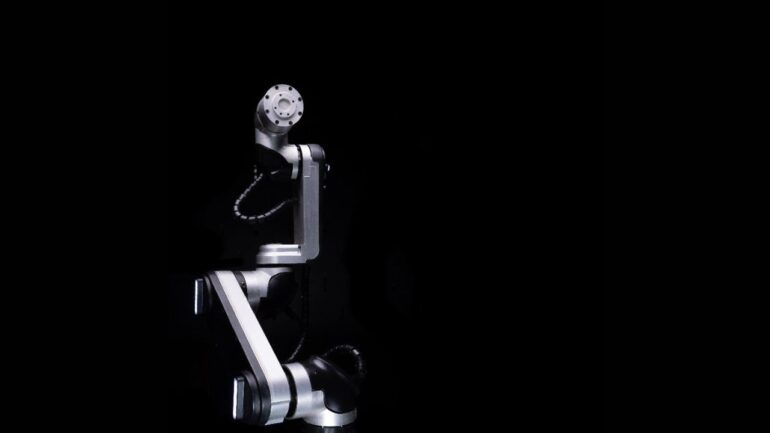TL;DR:
- Orangewood Labs was founded in 2017 to address the time-consuming and costly steps of painting and sanding furniture during manufacturing.
- They developed a programmable robotic arm for painting furniture, using affordable components to target small- and medium-sized businesses.
- Orangewood’s robots are highly programmable through their platform RoboGPT, making them adaptable and easy to use.
- The company has already gained significant funding and has a large team, with plans for further expansion and diversification into other use cases.
- Orangewood’s innovative solutions are poised to disrupt the robotics market, empowering small businesses and challenging traditional robotic arm manufacturers.
Main AI News:
In the world of manufacturing, the final stages of building furniture have long been a bottleneck. Painting and sanding, though essential, are labor-intensive and time-consuming processes, leading to increased costs and delayed production timelines. Enter Orangewood Labs, a pioneering company founded in late 2017 by Abhinav Das, Aditya Bhatia, and Akash Bansal. Their vision was to create an innovative, affordable, and programmable robotic arm to address these challenges.
Orangewood’s founders, having experienced the inefficiencies firsthand, aimed to provide a solution that would revolutionize the industry. Their remotely operated robotic arm was designed explicitly for painting furniture, thereby streamlining the labor-intensive tasks that had hindered production efficiency for too long. The company quickly caught the attention of investors, and recently, Orangewood secured an impressive $4.5 million in funding, led by Y Combinator, along with 7percent Ventures, Schox Ventures, VentureSouq, KSK Angel Fund, and other angel investors.
Breaking into the robotics market is no easy feat, as the founders acknowledge. High costs and a competitive landscape have caused many startups to falter. However, Orangewood’s approach is what sets them apart. By utilizing more affordable components than traditional robotic arm manufacturers, they have successfully brought the price down to a level accessible to small- and medium-sized businesses. The company firmly believes that its robots have the potential to empower these enterprises and drive growth in the market.
An essential aspect of Orangewood’s robots is their broad programmability. The startup developed RoboGPT, a sophisticated platform that allows users, whether roboticists or factory floor workers, to program the robotic arm using text or voice commands. This adaptability enables the robots to learn continuously from their environment, making them more efficient and versatile.
Expanding its horizons beyond furniture construction, Orangewood envisions its robots being utilized in various use cases, such as quality inspection, powder coating, and picking and sorting packaged goods. This ambition stems from the founders’ belief that traditional robotic arms have been challenging to program, hindering their adoption in many small businesses. RoboGPT’s advanced capabilities aim to change that narrative, making programming robotic arms more accessible and user-friendly.
With a burgeoning team of 50 contract and full-time workers and 500 deployments of their robotic arm, Orangewood is already making strides in the industry. The company has achieved an impressive annual recurring revenue of $750,000, indicating strong market demand and customer satisfaction.
Orangewood’s financial stability is well-cemented, as they recently completed a successful funding round and secured a debt financing line. This favorable position means they won’t need to raise additional capital for at least a year. However, to fulfill their existing backorders, expand their service network, and enhance manufacturing facilities, Orangewood is now actively seeking another equity raise in the range of $6 million to $7 million.
Conclusion:
Orangewood’s success in creating a cost-effective and programmable robotic arm for furniture painting demonstrates a promising future for the market. Their ability to cater to small- and medium-sized businesses with affordable technology and easy programming sets them apart from competitors. With their innovative approach and strong financial backing, Orangewood is well-positioned to lead the way in revolutionizing the robotics industry, offering solutions that empower enterprises to embrace automation and enhance their efficiency. The market can expect increased interest and adoption of Orangewood’s technology, encouraging other players to follow suit and embrace programmable robotics for various industrial applications.

